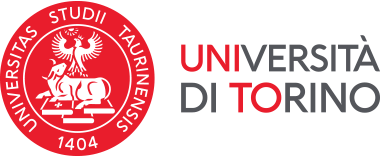
UNIVERSITÀ DI TORINO [Coordinator]
UNIVERSITÀ DI TORINO - The Physics Department of the University of Torino was created in 2011-2012 from the merge of the Departments of General Physics, Experimental Physics and Theoretical Physics. The Department promotes and coordinates teaching and research in the field of Physics and Astrophysics. Besides being equipped with educational, informatics and research labs, UniTo also provides a high-performance computing centre and hosts the Torino Section of the National Institute of Nuclear Physics (INFN).
Website
INAF – Istituto Nazionale di Astrofisica [Beneficiary]
INAF – Istituto Nazionale di Astrofisica, National Institute for Astrophysics is a governmental research organization with 16 research centers geographically distributed over the national territory, plus the “Galileo” observing facility located in La Palma, Canary Islands. INAF promotes, realizes and coordinates, also within programs of the European Union and international organisms, research activities in many astronomical fields, such as optical/infrared astronomy, radio astronomy, X and ray astronomy, particle astrophysics and cosmic physics, both in collaboration with Universities and with other public and private, national and international agencies. INAF is a major partner of the astrophysics related ESFRI projects (CTA, SKA and E-ELT), having actively participated in their definition since the initial phases; it has furthermore important participations in several other world class projects, both ground-based (e.g. ALMA, LBT, MAGIC, LOFAR) and space-borne (e.g. Planck, Gaia, Euclid). INAF is also active in the field of infrastructures for research, and in particular high performance and distributed computing technologies. INAF has an active team carrying out a forefront research activity in the field of Computational Cosmology.
Website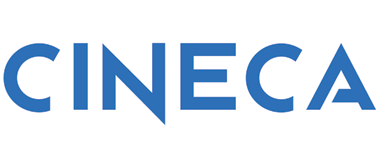
CINECA [Beneficiary]
CINECA, established in 1969, is a not-for-profit consortium of more than 110 members. It is the Italian national supercomputing facility, one of the largest in Europe; its HPC infrastructure is equipped with cutting-edge technology, and its highly qualified personnel cooperate with researchers and customers for the most effective exploitation of the HPC systems. CINECA has hosted and managed state-of-the-art HPC infrastructures for decades, for the benefit of the Italian and of the European scientific-academic and industrial communities. Its most recent acquisition is the EuroHPC JU’s Leonardo supercomputer. Currently CINECA is managing 4 Tier-0 systems (at position 4, 13, 24, 48 of the Top500 supercomputer list of November 2022) and several Tier-1 clusters. CINECA will also host one of the first EuroHPC quantum computers in Europe and it will manage the new Tier-1 HPC clusters for the Italian National Center for HPC. The mission of CINECA’s HPC Department is to accelerate scientific discovery by providing HPC resources, data management and storage systems and tools, HPC services and expertise at large, aiming to develop and promote technical and scientific advances related to high-performance computing for the Italian and European research community.
Website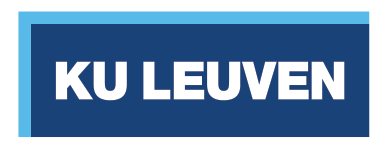
KATHOLIEKE UNIVERSITEIT LEUVEN [Beneficiary]
KATHOLIEKE UNIVERSITEIT LEUVEN is dedicated to education and research in nearly all fields. The division involved in the CoE is the Centre for mathematical Plasma-Astrophysics (CmPA) of the Department of Mathematics. The team of kinetic theory led by Giovanni Lapenta at the CmPA is expert in machine learning and in the development of particle in cell methods for application to space, astrophysical and laboratory plasmas.
Website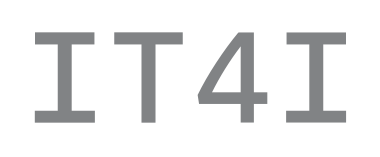
IT4Innovations National Supercomputing Center [Beneficiary]
IT4Innovations National Supercomputing Center, part of the VSB – Technical University of Ostrava is a leading research, development, and innovation centre active in the fields of High-Performance Computing (HPC), Data Analysis (HPDA), and Artificial Intelligence (AI) and their application to other scientific fields, industry, and society. IT4Innovations operates the most powerful supercomputing systems in the Czech Republic, which are provided to Czech and foreign research teams from both academia and industry. The key research areas of IT4Innovations include big data processing and analysis, machine learning, development of parallel scalable algorithms, solution of computationally demanding engineering problems, advanced visualization, virtual reality, modelling for nanotechnologies, and material design.
Website
LUDWIG-MAXIMILIANS-UNIVERSITAET MUENCHEN [Beneficiary]
LUDWIG-MAXIMILIANS-UNIVERSITAET MUENCHEN is a successful centre for astrophysical and cosmological research worldwide. LMU hosts astrophysicists and cosmologists at two different sites. The University Observatory has a history of over 200 years of innovation and excellence in the science of the cosmos. It currently consists of five chairs with a focus on Extragalactic Astronomy and Cosmology, Theoretical and Numerical Astrophysics, Cosmology and Structure Formation, Theoretical Astrophysics of Extrasolar Planets, and the intersection of Astrophysics, Cosmology, and Artificial Intelligence. In addition, the Department of Physics hosts two chairs working on theoretical aspects of Cosmology and (Astro-)Particle Physics.
Website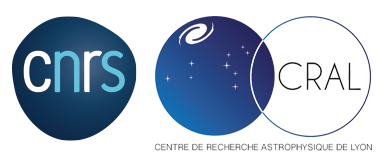
CENTRE NATIONAL DE LA RECHERCHE SCIENTIFIQUE [Beneficiary]
CENTRE NATIONAL DE LA RECHERCHE SCIENTIFIQUE is among the world's leading research institutions. Its scientists explore the living world, matter, the Universe, and the functioning of human societies in order to meet the major challenges of today and tomorrow. Internationally recognised for the excellence of its scientific research, the CNRS is a reference in the world of research and development, as well as for the general public. The department involved in the project is the Centre de Recherche Astrophysique de Lyon (CRAL), a laboratory working on fundamental research in astrophysics, in developing instrumentations for major observatories and in developing numerical methods for astrophysical fluid dynamics.
Website | Website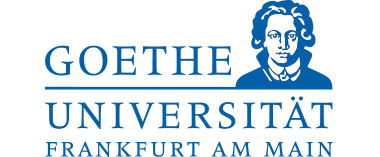
JOHANN WOLFGANG GOETHE-UNIVERSITAET FRANKFURT AM MAIN [Beneficiary]
JOHANN WOLFGANG GOETHE-UNIVERSITAET FRANKFURT AM MAIN - Goethe University is the third-largest comprehensive research university in Germany and centre of a vast network of universities and non-university research organisations in the Rhine-Main metropolitan region. It was established in 1914 as an endowed university with a unique profile as the first modern civic research university, characterised in equal measure by academic rigour, openness, and a strong commitment to its socio-political, cultural and economic environment.
Part of the research is carried out in Theoretical Astrophysics at the Institute for Theoretical Physics. The research focuses on the modelling of astrophysical compact objects such as black holes and neutron stars, either as sources of gravitational waves or sources of high-energy electromagnetic emission. The group carries out large-scale simulations of merging compact-object binaries and of accreting black holes in different astrophysical scenarios.
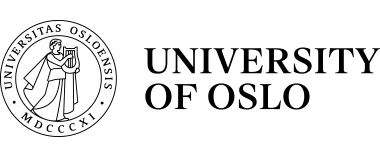
UNIVERSITETET I OSLO [Beneficiary]
With 28,000 students and 7000 employees, the University of Oslo is Norway's largest and oldest institution for research and higher education. UiO has 8 faculties, two museums and several centers, among which there are 10 Norwegian Centres of Excellence. In 2016 UiO was listed 67th in the Academic Ranking of World Universities, highest in Norway and 22nd in Europe.
The Faculty of Mathematics and Natural Sciences includes a total of nine institutes, one of which is the Institute of Theoretical Astrophysics (ITA), founded in 1934 by Professor Svein Rosseland with financial support from the Rockefeller Foundation. The Institute encompasses several fields within Astrophysics, ranging from Solar Physics, to Extragalactic Astrophysics and Cosmology, by using a combination of theory, extensive computer simulations and multi-wavelength observations. Currently ITA hosts 87 staff members, of which 18 are permanent scientific staff members who received six ERC grants, and a total of 11 EU-funded grants (H2020 and FP7).
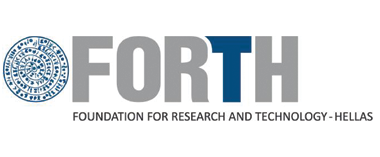
IDRYMA TECHNOLOGIAS KAI EREVNAS [Beneficiary]
IDRYMA TECHNOLOGIAS KAI EREVNAS - The Foundation for Research and Technology - Hellas (FORTH) is the premier research centre in Greece, internationally acknowledged for its excellence in basic and applied research, in developing applications and products, and in providing services. The Institute of Computer Science (ICS), one of the six Institutes of FORTH, will be contributing to this project. FORTH-ICS has a 35-year history of internationally competitive R&D contributions across the fields of Information & Communication Technologies, as well as of academic and industrial cooperation; it has adopted an evolving strategy to promote the commercial exploitation of R&D results by providing services, licensing products to industrial partners, contracting with industrial partners to jointly develop new products, and participating in spin-off companies and joint ventures. FORTH-ICS represents Greece in the European Research Consortium for Informatics and Mathematics (ERCIM).
Website
E4 Computer Engineering [Beneficiary]
E4 Computer Engineering SpA was founded in 2002. Over the years, the company has specialised in the production of professional IT systems and planning their integration into existing frameworks, in order to provide solutions for High Performance Computing (HPC) and more standard Enterprise systems. The company also provides turnkey solutions for the Data Centre. E4 Computer Engineering stands out for its tireless pursuit of the most cutting-edge proposals in the IT sector, for the quality of its products and the solutions it offers, and for the highly professional manner in which it communicates with its clients and addresses their demands in the most effective and efficient way possible. Since 2002, E4 Computer Engineering has been innovating and actively encouraging the adoption of new computing and storage technologies. Because new ideas are so important, we invest heavily in research and hence in our future. Thanks to our comprehensive range of hardware, software and services, we are able to offer our customers complete solutions for their most demanding workloads in: HPC, Big-Data, AI, Deep Learning, Data Analytics, Cognitive Computing and for any challenging Storage and Computing requirements. In the past 8 years, E4 has designed, integrated and supported compute servers and storage servers specifically for the technical/scientific community. These systems are targeted at modelling physical phenomena and developing products.
Website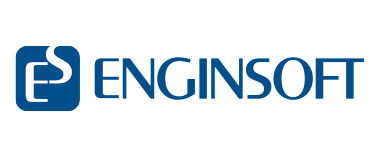
EnginSoft [Beneficiary]
EnginSoft is one of the leading European technology transfer companies in the field of Simulation Based Engineering Science (SBES). Since its foundation in 1984, through our expansion in the sector in the mid-Seventies, to the present day with a global presence, EnginSoft has always been at the forefront of technological innovation. The company is unique simultaneously having specific and advanced skills in all disciplines in which simulation technologies are utilized, combined with the vital complementary statistical approaches, scientific computing know-how and simulation process and data management (SPDM) knowledge and experience to assist customers to safely and effectively navigate, exploit and manage the vast and complex data and information obtained both from SBES applications and from direct physical testing. Company knowledge and experience enables us to guide and assist customers with the process of digital transformation by identifying and resolving all the problems concerning the integration of simulation with other digital technologies, from the conception of a product, to its design and production - including plant planning and commissioning - right down to operations, across every industrial sector and business dimension, and fully consistent with the relevant development projects and investment plans.
Website
EVIDEN (BULL) [Beneficiary]
Eviden designs the scope composed of Atos’ digital, cloud, big data and security business lines. It will be a global leader in data-driven, trusted and sustainable digital transformation. As a next generation digital business with worldwide leading positions in digital, cloud, data, advanced computing and security, it brings deep expertise for all industries in more than 53 countries. By uniting unique high-end technologies across the full digital continuum with 57,000 world-class talents, Eviden expands the possibilities of technologies for enterprises and public authorities, helping them to build their digital future. Eviden is an Atos Group business with an annual revenue of c. € 5 billion.
Atos is a global leader in digital transformation with 112,000 employees and annual revenue of c. € 11 billion. European number one in cybersecurity, cloud and high-performance computing, the Group provides tailored end-to-end solutions for all industries in 71 countries. A pioneer in decarbonization services and products, Atos is committed to a secure and decarbonized digital for its clients. Atos is a SE (Societas Europaea) and listed on Euronext Paris.
The purpose of Atos is to help design the future of the information space. Its expertise and services support the development of knowledge, education and research in a multicultural approach and contribute to the development of scientific and technological excellence. Across the world, the Group enables its customers and employees, and members of societies at large to live, work and develop sustainably, in a safe and secure information space.
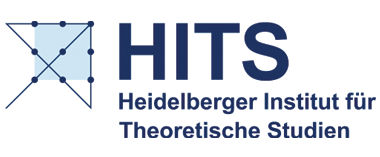
HITS GGMBH [Beneficiary]
HITS GGMBH - The Heidelberg Institute for Theoretical Studies was established in 2010 by SAP co-founder Klaus Tschira (1940-2015) and the Klaus Tschira Foundation as a private, non-profit research institute.
HITS conducts basic research in the natural sciences, mathematics and computer science with a focus on the processing, structuring, and analyzing of large amounts of complex data and the development of computational methods and software. The research fields range from molecular biology to astrophysics.
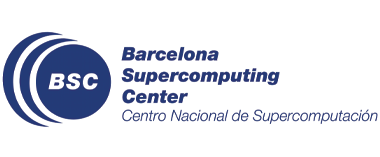
BARCELONA SUPERCOMPUTING CENTER-CENTRO NACIONAL DE SUPERCOMPUTACION [Beneficiary]
Barcelona Supercomputing Center-Centro Nacional de Supercomputación (BSC-CNS) is the national supercomputing centre in Spain. Specialised in high performance computing (HPC) and managing MareNostrum, one of the most powerful supercomputers in Europe, BSC is at the service of the international scientific community and of industry that requires HPC resources. Its multidisciplinary research team and computational facilities –including MareNostrum– makes BSC an international centre of excellence in e-Science.
Since its establishment in 2005, BSC has developed an active role in promoting HPC in Spain and Europe as an essential tool for international competitiveness in science and engineering. The centre manages the Red Española de Supercomputación (RES), and is a hosting member of the Partnership for Advanced Computing in Europe (PRACE) initiative.